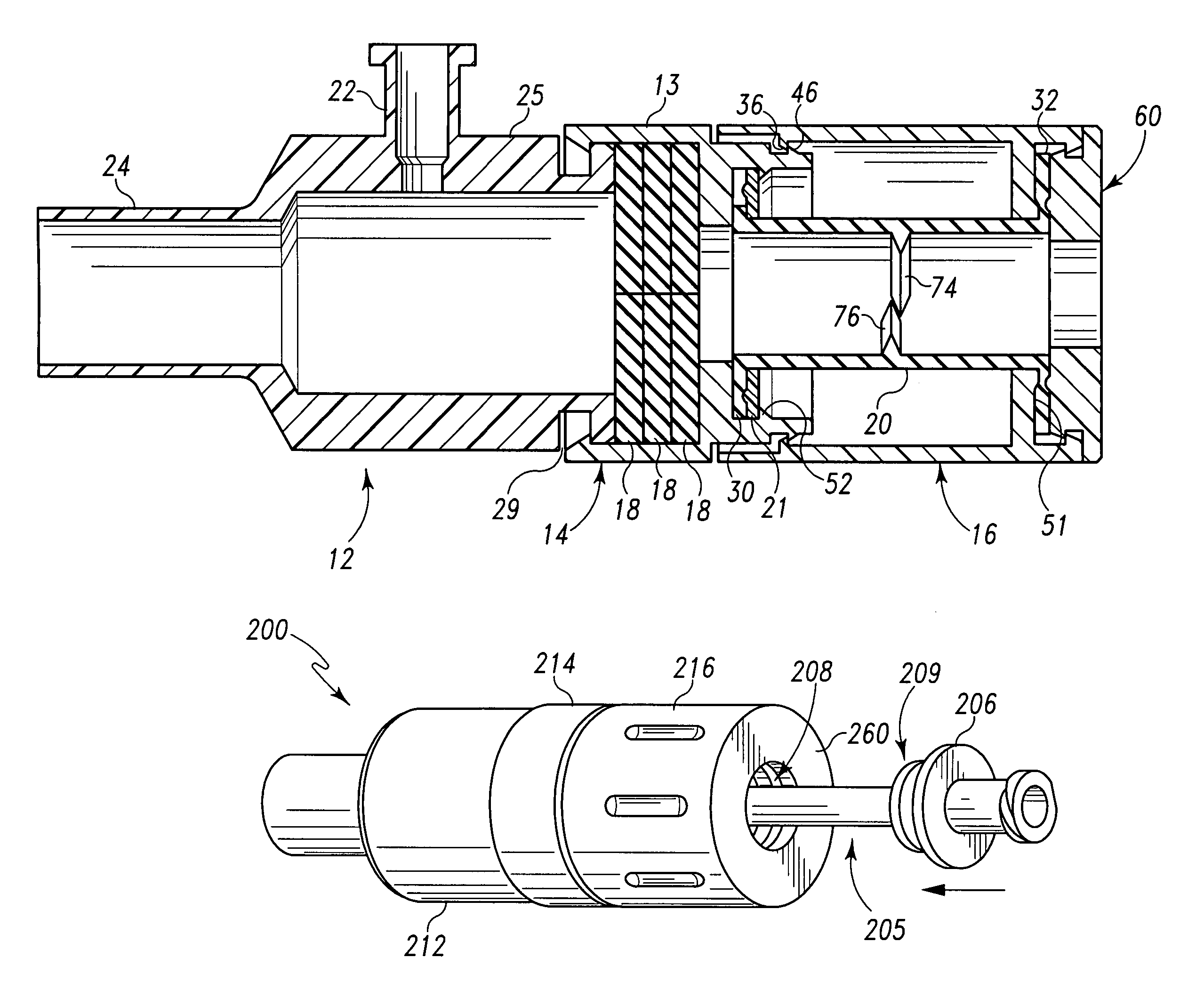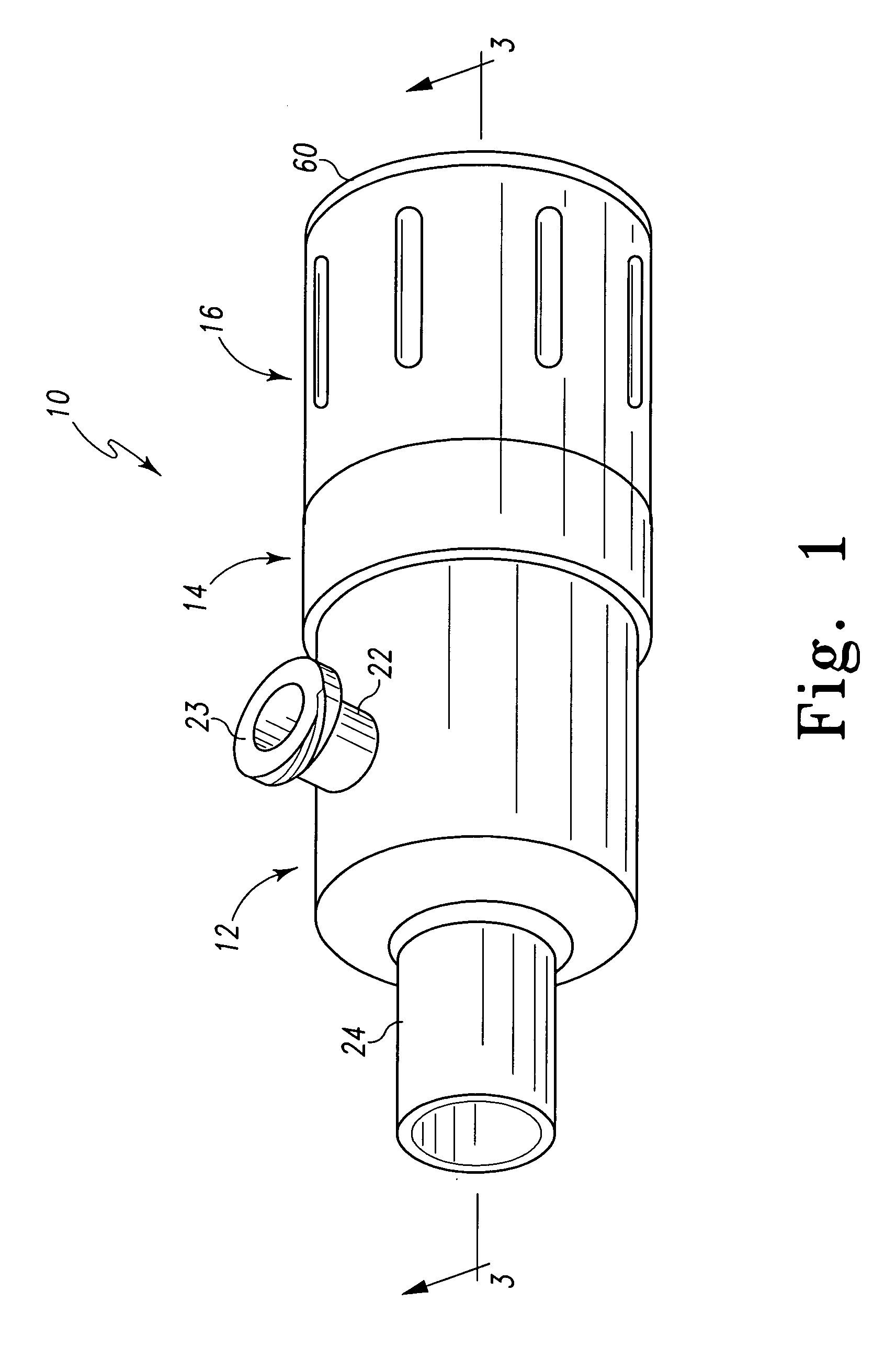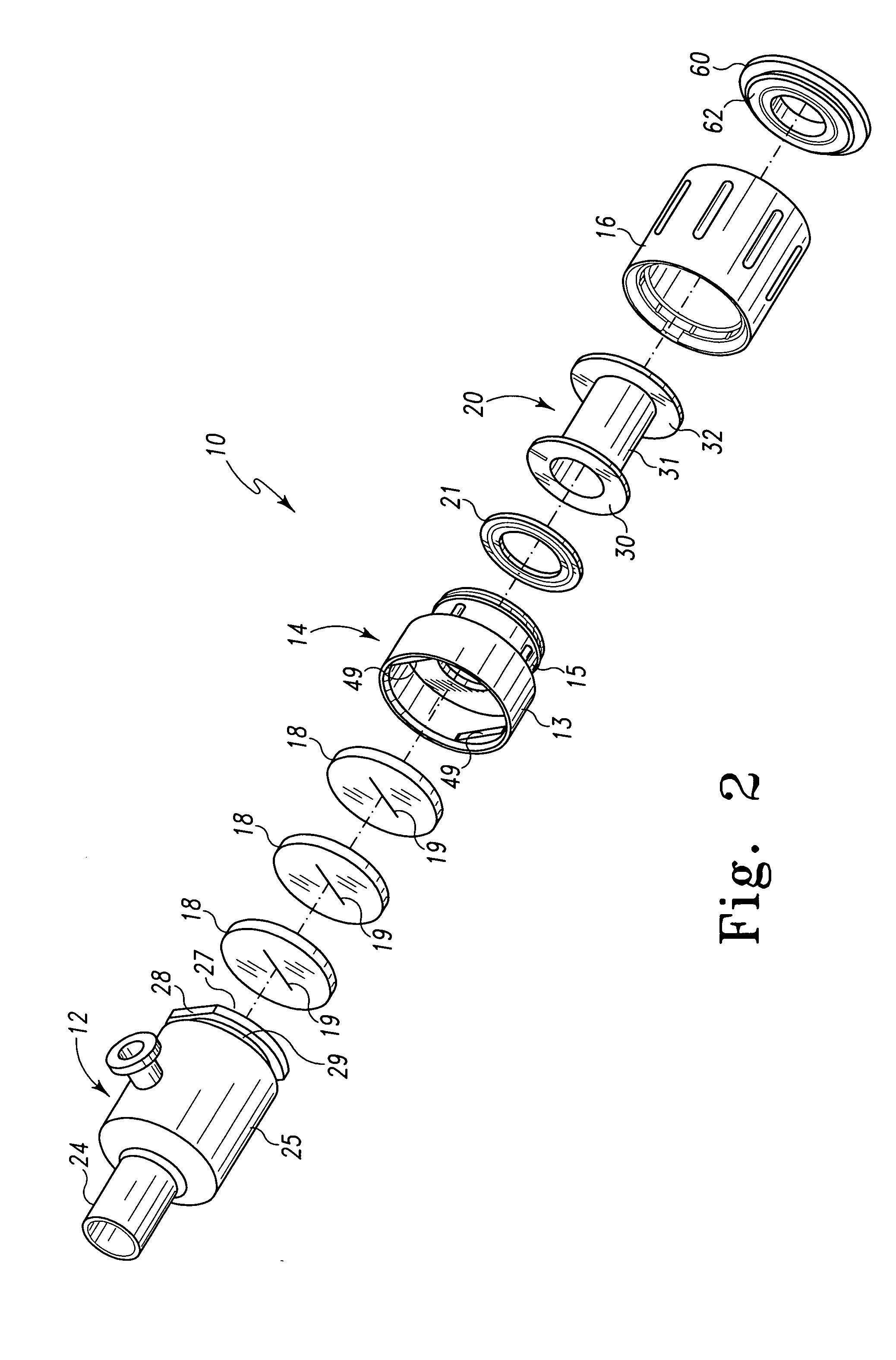Hemostatic valve assembly
a valve assembly and hemisphere technology, applied in the field of medical devices, can solve the problems of less effective sealing of smaller diameter devices, less than optimal manner of engaging the ends of the seal to the respective hub and cap, and increased risk of fluid inward or outward leakag
- Summary
- Abstract
- Description
- Claims
- Application Information
AI Technical Summary
Benefits of technology
Problems solved by technology
Method used
Image
Examples
Embodiment Construction
[0038]For the purposes of promoting an understanding of the principles of the invention, reference will now be made to the embodiments illustrated in the drawings, and specific language will be used to describe the same. It should nevertheless be understood that no limitation of the scope of the invention is thereby intended, such alterations and further modifications in the illustrated device, and such further applications of the principles of the invention as illustrated therein being contemplated as would normally occur to one skilled in the art to which the invention relates.
[0039]In the following discussion, the terms “proximal” and “distal” will be used to describe the opposing axial ends of the valve assembly, as well as the axial ends of various component features. The term “proximal” is used in its conventional sense to refer to the end of the assembly (or component thereof) that is closest to the operator during use of the assembly. The term “distal” is used in its convent...
PUM
 Login to View More
Login to View More Abstract
Description
Claims
Application Information
 Login to View More
Login to View More - R&D
- Intellectual Property
- Life Sciences
- Materials
- Tech Scout
- Unparalleled Data Quality
- Higher Quality Content
- 60% Fewer Hallucinations
Browse by: Latest US Patents, China's latest patents, Technical Efficacy Thesaurus, Application Domain, Technology Topic, Popular Technical Reports.
© 2025 PatSnap. All rights reserved.Legal|Privacy policy|Modern Slavery Act Transparency Statement|Sitemap|About US| Contact US: help@patsnap.com



